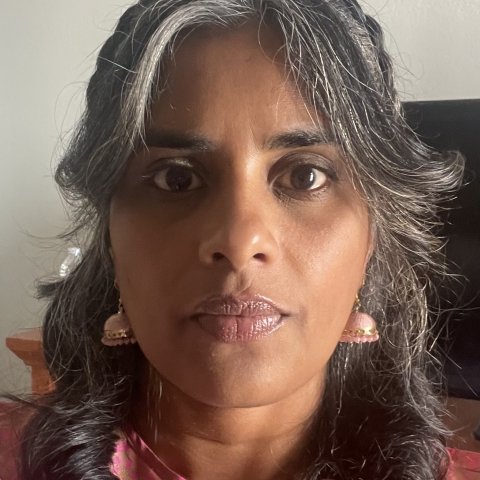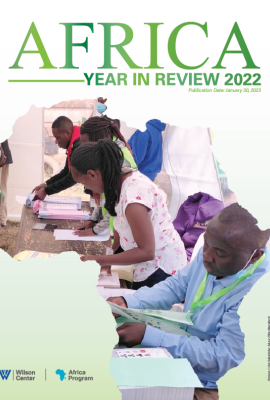Shobana Shankar
Former Fellow
Professional Affiliation
Professor of History, Stony Brook University-State University of New York
Expert Bio
Shobana Shankar is Professor of African and global history whose earlier work has included stints at the United Nations. Her research focuses on cultural encounters and politics in colonial and postcolonial West Africa and Africa-South Asia relations, especially in religion, higher education, and scientific development. Her recent book, An Uneasy Embrace: Africa, India and the Spectre of Race is the first history of how race and racialization have brought Africans and Indians together, yet also driven them apart. She is also author of Who Shall Enter Paradise? Christian Origins in Muslim Northern Nigeria, c.1890-1975 and co-editor of two collections of international research on religious politics. She has received fellowships from Fulbright, Wenner-Gren Foundation, Council of American Overseas Research Centers, American Historical Association, and others. She writes for wider audiences on topics such as lessons for the U.S. on Nigeria’s experience with vaccine hesitancy and eugenics at the Mississippi State Penitentiary.
Expertise
- Conflict Resolution and Peacebuilding
- Economics and Globalization
- History
- International Development
- Society and Culture
- Urban Studies
Wilson Center Project
A Nigeria-India Nexus: Negotiating Cultural Economic Power in the Global South.
Project Summary
This project examines movements of people and goods between Nigeria and India, two populous nations holding sway in regional and global affairs. Their diasporas are among the largest in the world, and Nigerian migrants constitute a majority among the rapidly growing African population in India. This project traces the complex transregional economy in goods such as botanicals, books, film, medicines, and petroleum. Complex patterns of exchange, along with migration, have created benefits, conflicts, and dependencies shaping the future of these leading democracies in the Global South. This book—featuring primary sources representing local perspectives—is vital work of history and contemporary life. Given that Nigeria and India are fragile democracies contending with economic challenges and the management of cultural diversity, their entanglements are important on many levels—from understanding African-Asian economic networks to tracing how changing patterns of migration and multiracialism affect the Global South.
Major Publications
An Uneasy Embrace: Africa, India and the Spectre of Race (Hurst/Oxford, 2021)
Who Shall Enter Paradise? Christian Origins in Muslim Northern Nigeria, c.1890-1975 (Ohio University Press, 2014)
“Slavery, an African-Indian Conceptualization,” inPrejudice, Discrimination and Racism against Africans and Siddhis in India, edited by Ibrahima Diallo (Newcastle Upon Tyne: Cambridge Scholars Press, 2020).
“Christian-Muslim Relations,” in Handbook on Islam in Africa, edited by Terje Ostebo (New York: Routledge, 2022).
“Lessons Learned from Lassa and Ebola Fevers: Missionaries and Epidemics in West Africa, 1969 to the present,” in Breaking Barriers: SIM and African Pioneers Remaking Missions in the Sudan, co-edited by Cooper et al. (Trenton: Africa World Press, 2018).


